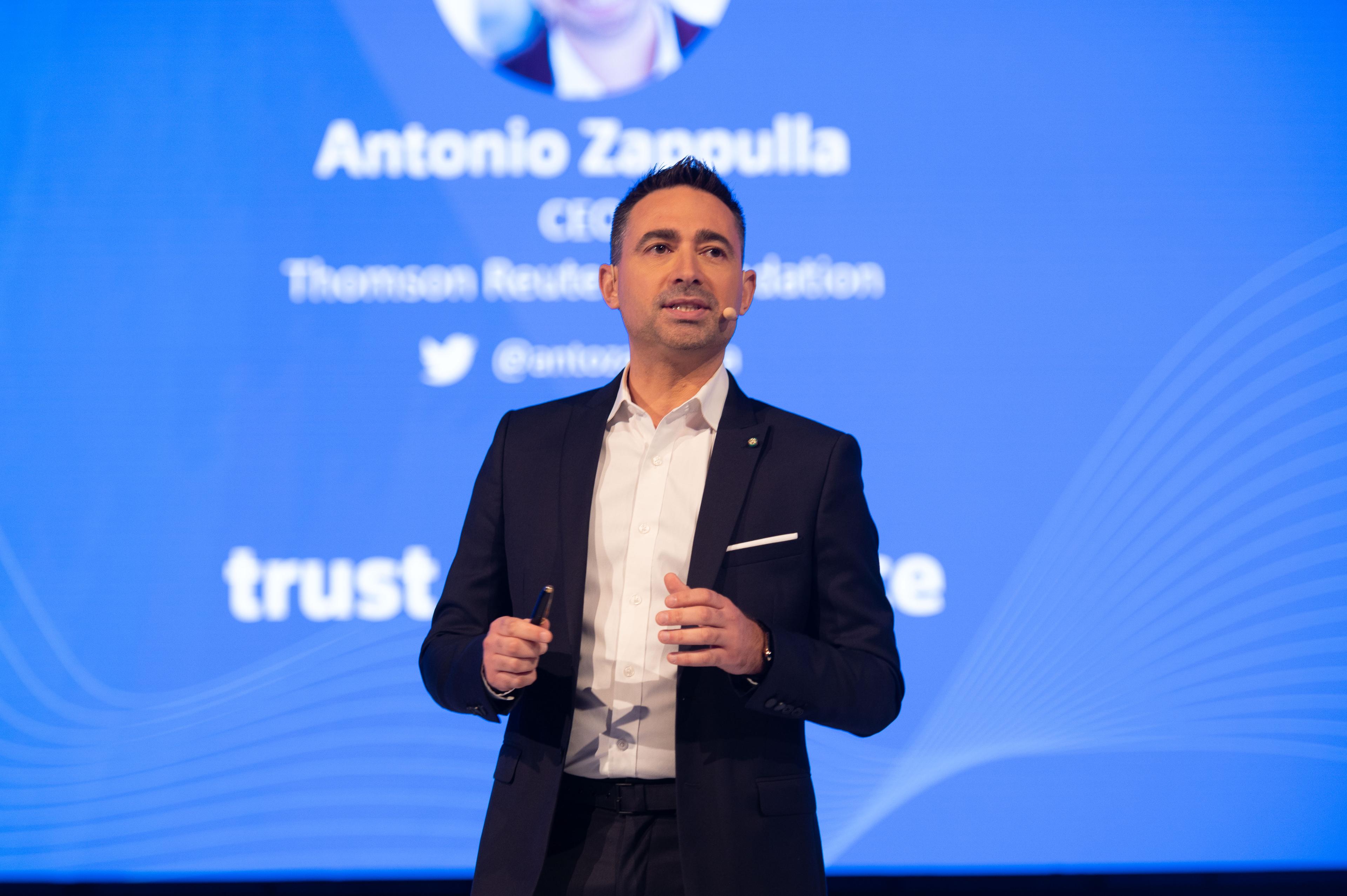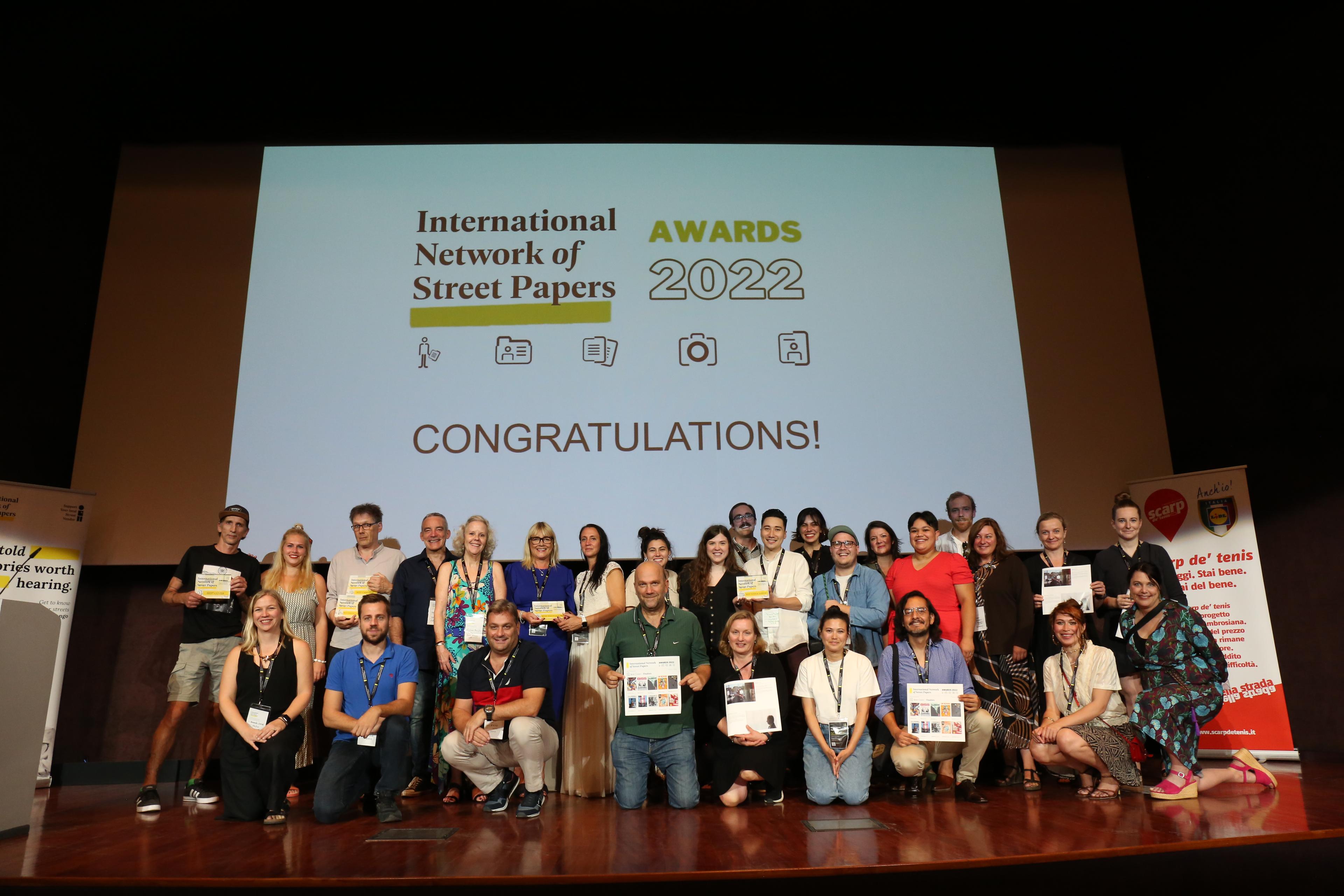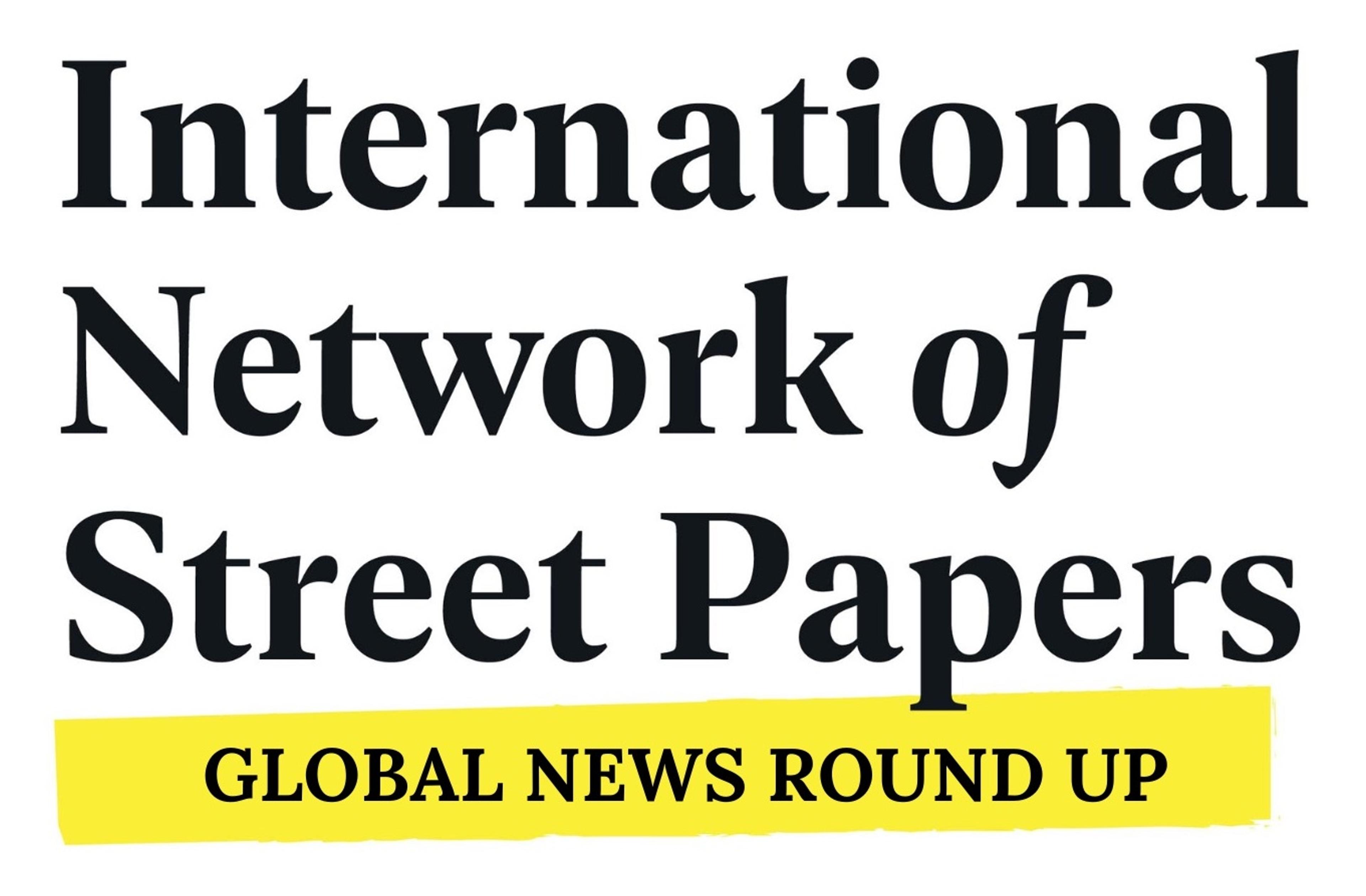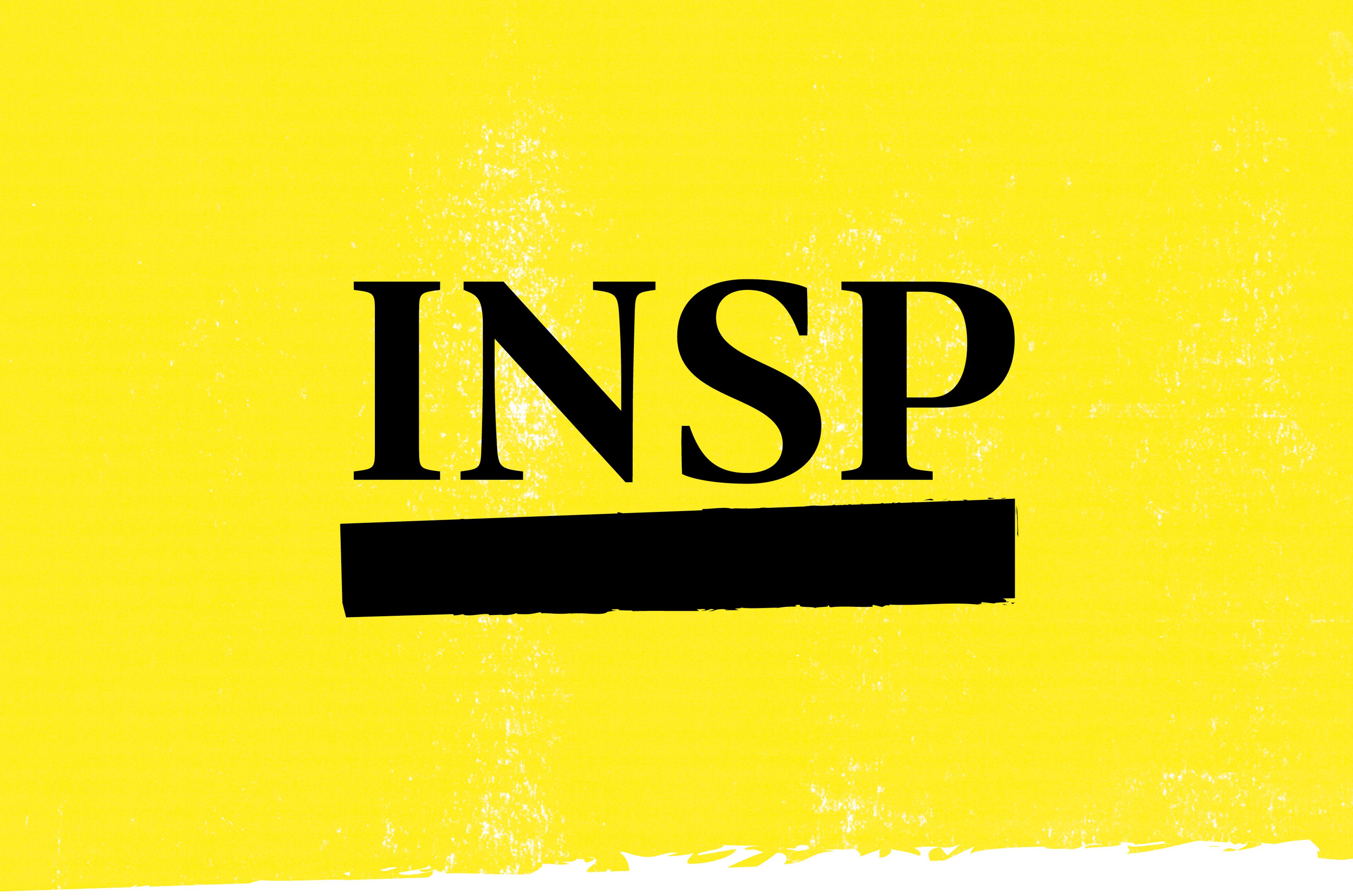Street papers are “giving a lifeline and dignity back to people who have lost everything, sending a powerful message to homeless people that they are visible,” says Thomson Reuters Foundation Chief

Thomson Reuters Foundation CEO Antonio Zappulla at the 2022 Trust Conference. Credit: Thomson Reuters Foundation / Ed Telling.
- News
At last week’s Trust Conference – an annual event hosted by the Thomson Reuters Foundation in London – the organisation’s CEO Antonio Zappulla was drawn on the subject of street papers: how TRF’s values align with their concept and mission and the power of the media to change perceptions.
The work and impact of street papers has been praised by Antonio Zappulla, chief executive of Thomson Reuters Foundation (TRF), corporate foundation of Thomson Reuters, the global news and information services company.
Speaking at the Trust Conference in London – where more than 50 globally renowned public figures, including climate change experts, human rights defenders, policymakers, businesses leaders and digital rights pioneers met to discuss and debate media and democratic freedom – Zappulla commended the hard work of street papers in tackling some of the hard issues that societies face today.
“I think it’s brilliant – when we are talking about inclusive economies, we are talking about what you are doing as street papers,” Zappulla told the International Network of Street Papers (INSP). “It’s giving a lifeline and dignity back to people at times when they have lost everything.
“I love when I see people who are selling The Big Issue [the UK’s street paper], and other publications that are part of your network, because I think its sending a powerful message to homeless people that they are visible. And I think that’s really important. They suddenly assume an economic value.
“I am not an expert in homelessness, but I have heard from others that it takes a bed, a shower, and a suit to go to a job interview, to change the course of a life for someone, so if that can be achieved by selling media, it’s very powerful and it’s absolutely wonderful.

Credit: Thomson Reuters Foundation / Ed Telling
“[At TRF] we believe that you cannot achieve sustainable change unless you have a free and accurate flow of information within society and unless laws are set up for this. You need to allow a legal framework that is for the full economic and social participation of people within society. Then obviously you need to have information that is accurate and allows citizens to make informed decisions for themselves and their communities.”
Delegates at the Trust Conference heard from a wide range of speakers providing different perspectives on some of the world’s toughest challenges, including media freedom, war and conflict, and climate change. Speakers included Nobel Peace Prize winner Dimitry Muratov talking candidly about Russian media censorship; young climate change activist Vanessa Nakate who warned that “the climate crisis is not some distant threat – it’s already here”; and Nazanin Zaghari-Ratcliffe, who was wrongly imprisoned in Iran for six years.
With TRF’s main focus areas media freedom, inclusive economies, and human rights, Zappulla believes that media organisations like TRF and INSP are aligned in wanting to use journalistic outlets as a force for good, using the example of TRF’s LGBTQ+ news platform Openly which, he said, “brings the rigour of Reuters journalism” to a community that is usually reported on in “sensational or very niche” manner.
“When we talk about media freedom, we are really talking about economic empowerment, it’s part of the same equation,” he continued. “And human rights, when journalists are abused and the rule of law is used against them to silence them, that is really going against a human rights framework. These issues are intersectional.

Credit: Thomson Reuters Foundation / Ed Telling
Antonio Zappulla, Thomson Reuters Foundation CEOWhen we talk about media freedom, we are really talking about economic empowerment, it’s part of the same equation.
“The media is often seen as this box that produces noise in the background. But we’ve seen with, for example, the results of referendums, and elections in Europe and the rest of the world, that nowadays it is important that quality information that is fair, accurate and balanced gets centre stage amidst the information chaos.
“The role of independent journalism in shining a light in holding power to account, in holding governments to account, and also in creating conversations where it is needed. Lifting the voice to people that don’t have access to the megaphone that is the media is essential.”
Mike Findlay, INSP’s chief executive, who attended Trust Conference representing the organisation, said: “At a time when we are surrounded by false information and fake news, it has been reassuring to be in the same room as many global experts who are committed to supporting fairer and more just societies, and to ensuring that media freedom is upheld as part of democracy.
“For our global network of street papers, I am immensely proud of the work we do to tackle homelessness and poverty through providing a dignified way for people to earn an income, as well as our own global news service providing the ability for untold stories to be read and heard.”


